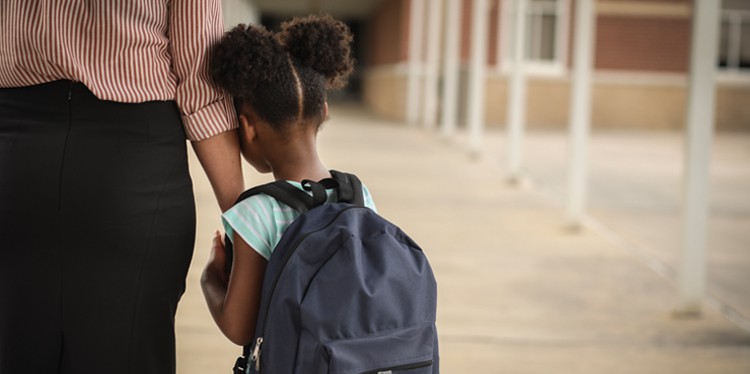What’s a parent/guardian to do when their student “hates school”?

It’s that time of year when the leaves are falling, the kids are back in school, and they love it. Right? Well, this may not be your experience and you are not alone. It is common for children to not like school at certain times in their lives. You may have even heard the dreaded words, “I hate school!”
Now it’s your job to do some detective work and find out why. What is at the root of not liking school?
A good place to start is to make time and create a safe place for your student to share their thoughts and feelings. This will look different for each family. It may be at the dinner table, where you prioritize sitting down together to eat and turn off distractions such as phones and the TV.
For example, at our home, we often share our highs and lows of the day at dinner. Admittedly, some are more excited to participate than others. For others, sharing may be best at bedtime. Some children may be more open to sharing as you take the time to sit with them and listen at the end of the day.
When asking a child about school, an open-ended question is a good place. Instead of asking, “How was school?” try out one of these questions:
- What happened at school today that made you happy?
- What happened at school today that made you sad?
- What did you talk about at lunch?
- What did you do at recess?
- Tell me something that you learned today.
Through these questions, you may learn more about their school day. It is a good starting place for a deeper dive into how school is going. From here, you may want to explore common causes of not liking school. In my years as a pediatrician, the common stories of children disliking school included experiencing:
- Bullying
- Learning difficulties
- Anxiety
- Adjustment to change such as a new home, school, or family stress.
If you suspect one or some of these are contributing, you are not alone. These are common challenges that families face.
So when should you reach out for help? The answer: It’s never too soon. Start by talking with your student’s teacher. What do they observe from your student during the day? What resources are available to help support your student? Many schools have social workers to help navigate the next steps. Some schools even have child psychologists who can work directly with children.
You are welcome to bring your concerns to your medical provider. Medical providers can help direct you to resources and referrals if needed. It is very important to reach out for help from your school and medical provider if your student is refusing to go to school.
As you move forward, let your student know that they are not alone and that you are there for them. Send a note with them as a tangible reminder of your support. Additionally, surround them with other supportive adults by addressing the situation with their teachers and medical providers.
Resources
- Healthychildren.org
- Hennepin Healthcare, Talking to kids about bullying
- The Kissing Hand by Audrey Penn (picture book on school anxiety)
- PACER Center, resources to help families make decisions about education and other services for their child or young adult with disabilities
About the author
 Kathy Hakanson is a pediatrician at Hennepin Healthcare. She sees infants, children, and teenagers at the Brooklyn Park Clinic and the Clinic & Specialty Center Pediatric Clinic in Minneapolis. She considers it a privilege to walk with families through the good and hard times. Outside of work, she enjoys spending time with her husband, son, and daughter.
Kathy Hakanson is a pediatrician at Hennepin Healthcare. She sees infants, children, and teenagers at the Brooklyn Park Clinic and the Clinic & Specialty Center Pediatric Clinic in Minneapolis. She considers it a privilege to walk with families through the good and hard times. Outside of work, she enjoys spending time with her husband, son, and daughter.

